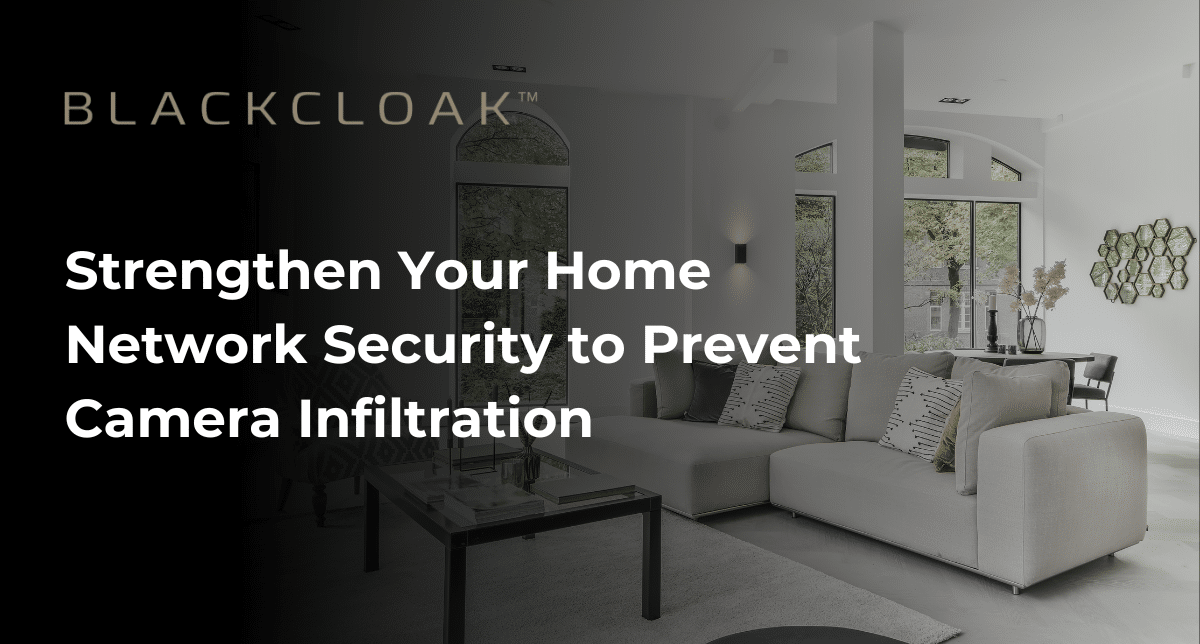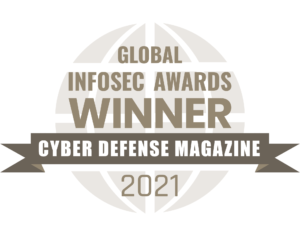Strengthen Your Home Network Security to Prevent Camera Infiltration

Regardless of who you are, ensuring the security of your home network is a priority that most don’t consider. Camera infiltration, where cybercriminals gain unauthorized access to home security cameras, can lead to severe privacy breaches and potential security threats.
Let’s first talk about Victor (whose name has been changed for this story), a high-profile executive who experienced camera infiltration, and how he became, first, a victim and then removed the threat.
Victor’s Story: A Wake-Up Call
Victor, a successful CEO of a tech company, prided himself on his state-of-the-art smart home. His home was equipped with the latest security cameras, smart locks, and other IoT devices that were used by him in his personal and work life, and by his family for their activities.
One evening, while reviewing his security footage, Victor noticed something unusual. The camera in his living room had been accessed remotely, and there were recordings of his private conversations and activities, and a few recordings of his children playing in the backyard.
Alarmed, Victor contacted a cybersecurity expert who discovered that his home network had been compromised. The hacker had exploited a vulnerability in his router’s firmware, gaining access to his security cameras and other connected devices. This breach not only invaded Victor’s family’s privacy but also posed a significant security risk, as sensitive business information was discussed at his home.
Tips to Strengthen Home Network Security and Prevent Camera Infiltration
To prevent camera infiltration and protect your home network, we recommend the following tips:
Change Default Credentials
- One of the first steps in securing your home network is to change the default login credentials for your router and all connected devices. Default usernames and passwords are easily accessible to hackers.
Enable WPA3 Encryption
- Ensure that your Wi-Fi network is secured with WPA3 encryption, the latest and most secure Wi-Fi encryption standard. This helps protect your network from unauthorized access.
Regularly Update Firmware
- Keep your router and all connected devices up-to-date with the latest firmware. Manufacturers often release updates to patch security vulnerabilities.
Use Strong, Unique Passwords
- Create strong, unique passwords for your Wi-Fi network and all connected devices. Avoid using easily guessable passwords and consider using a password manager to keep track of them.
Segment Your Network
- Create separate networks for different types of devices. For example, have one network for your security cameras and another for your personal devices. This limits the potential damage if one network is compromised.
Disable Remote Access
- Unless absolutely necessary, disable remote access to your security cameras and other IoT devices. This reduces the risk of unauthorized access from outside your home network.
Enable Two-Factor Authentication (2FA)
- Whenever possible, enable two-factor authentication for your devices and online accounts. This adds an extra layer of security by requiring a second form of verification.
Monitor Network Activity
- Regularly monitor your network for any unusual activity. Many routers offer built-in monitoring tools that can alert you to potential security threats.
Invest in a Secure Router
- Consider investing in a high-quality, secure router that offers advanced security features such as built-in firewalls, VPN support, and automatic updates.
Educate Yourself and Your Family
- Stay informed about the latest cybersecurity threats and best practices. Ensure that everyone in your household understands the importance of network security and how to maintain it.
Consider Professional Protection Services
- Services like BlackCloak offer comprehensive digital protection, including monitoring, threat detection, and personalized security recommendations tailored to your needs.
Victor’s experience highlights the critical importance of securing your home network to prevent camera infiltration. By following these tips and staying vigilant, you can significantly reduce the risk of unauthorized access to your security cameras and other connected devices, especially as they are gateways to the rest of your digital footprint.
Protecting your home network is not just about technology; it’s about ensuring the privacy and security of your personal and professional life. With the right measures in place, you can enjoy the convenience of a smart home without compromising your safety.
BlackCloak: Concierge Personal Cybersecurity Services
BlackCloak offers award-winning personal cybersecurity services to executives, public figures, and high-net-worth individuals. If you’re interested in learning more about how our comprehensive concierge cybersecurity services can protect you and your family, contact us today.











